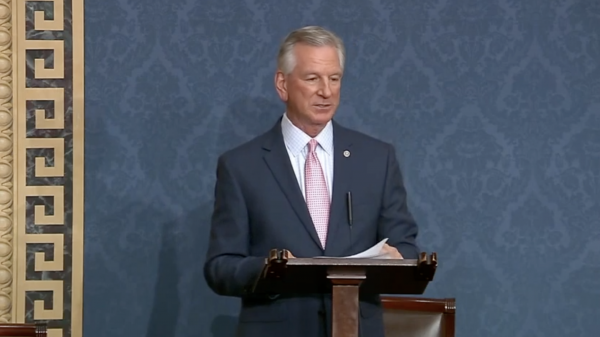Congresswoman Terri Sewell held a telephone town hall to inform her constituents about recent wins for seniors receiving Medicare, relief for Alabama’s farmers and more benefits made available for veterans in Alabama.
She was joined by guest speakers Nivory Gordon Jr., State Director of the United States Department of Agriculture Rural Development, Clifton Warren Jr., State Executive Director of the United States Department of Agriculture Farm Service Agency, and Corey Hawthorne, Executive Director at the Department of Veterans Affairs Regional Benefits Office in Montgomery.
Sewell began by highlighting the recently announced price decreases for 10 brand-name Medicare Part B and Part D drugs that Alabama residents who receive Medicare can take advantage of at the beginning of 2026.
The Inflation Reduction Act, which allows these prices to drop, came with many provisions that would reduce the cost of prescription drugs for Medicare beneficiaries. Sewell was the only member of the Alabama delegation to vote in favor of it.
The result of price negotiations was available two weeks after the deadline. In 2023, if the lower drug prices negotiated by Medicare had been in place, it would have saved about $6 billion on prescription drugs. This would have reduced overall spending on these drugs by 22 percent.
In the meantime, at the beginning of next year, residents on Medicare will have their yearly out-of-pocket spending on prescriptions capped at $2,000. There will also be options available to pay monthly throughout the year or as they occur, depending on which is most viable.
Warren spoke to the effects of the Inflation Reduction Act’s Section 22007 has brought in millions of dollars for Alabama farmers. Section 22007 provides financial assistance for farmers who experienced discrimination in USDA farm lending programs before Jan. 2021.
Congress approved a one-time Discrimination Financial Assistance Program and the award decisions were announced last month. Almost 11,000 farmers in Alabama received funds from this program, coming out to $383 million from the USDA.
Hawthorne discussed some of the effects of the Sergeant First Class Heath Robinson Honoring Our Promise to Address Comprehensive Toxins Act. The law, which was signed two years ago, expanded health care coverage and benefits for veterans exposed to toxic substances like Agent Orange and open-air burn pits.
Through the PACT Act, the VA added additional presumptive conditions as a side effect of exposure, as well as more exposure locations. Alabama currently has 27,858 PACT Act claims granted with a 73.9 percent approval rate.
These developments promise to bring tangible improvements to the lives of Alabama residents with the continued importance of advocacy and effective policy-making in addressing the needs of communities.





















































